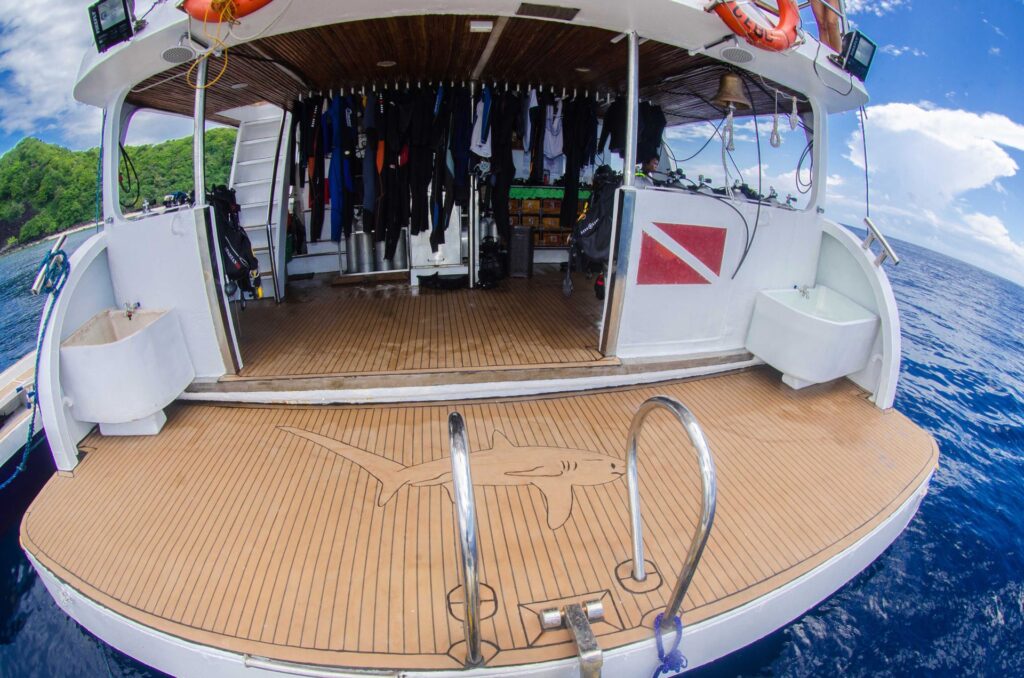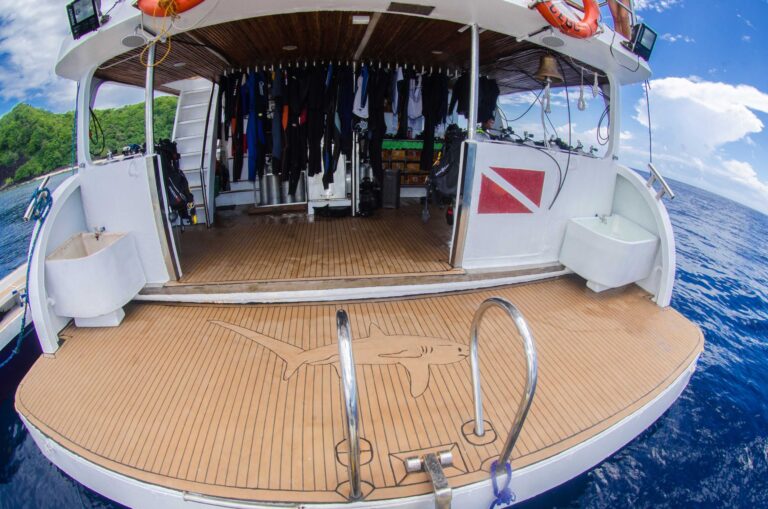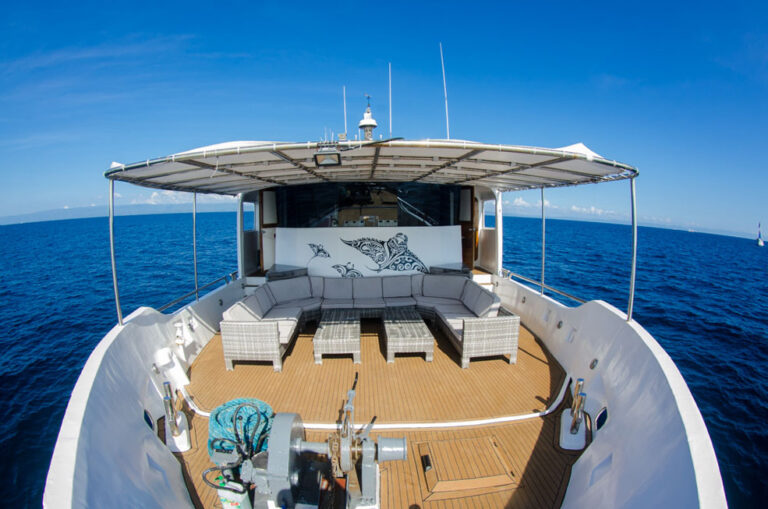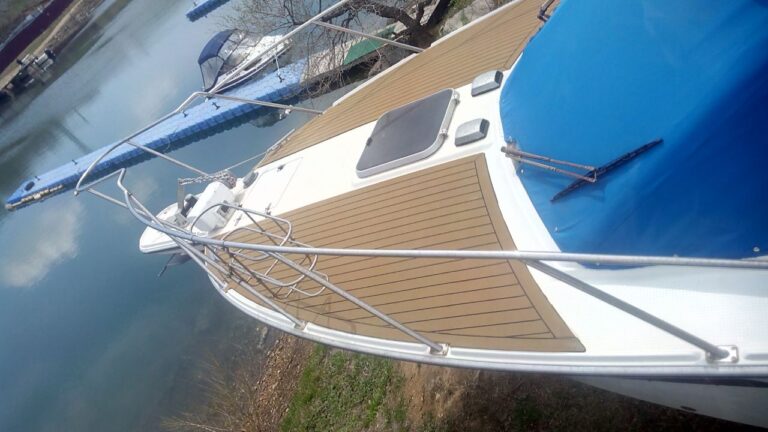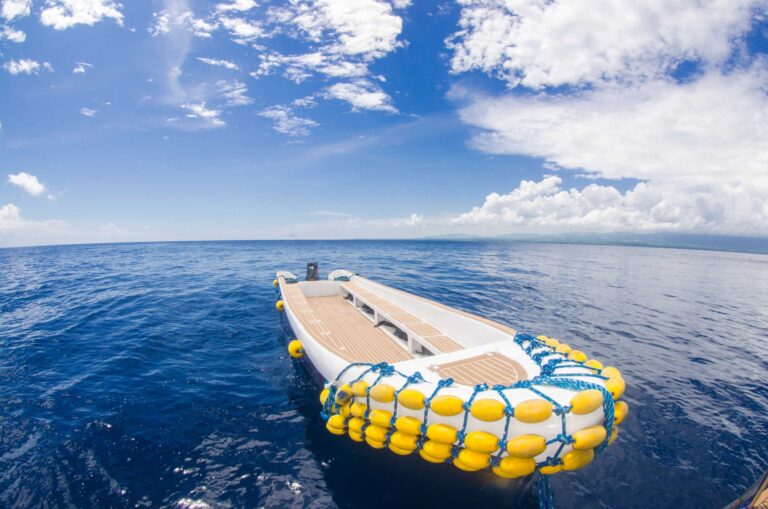When it comes to selecting the best material for a boat deck, functionality, durability, and aesthetics are key considerations. Since boats are constantly exposed to harsh maritime conditions—sun, saltwater, moisture, and temperature fluctuations—the material used for decking must not only perform well under these demanding circumstances but also maintain its appearance and structural integrity over time. For many boat owners, the material of choice has historically been teak, known for its beauty, durability, and ability to withstand the elements. However, in recent years, synthetic teak has emerged as a highly popular alternative, offering many of the same benefits without the high maintenance demands of natural wood.
The Importance of Deck Coverings
Deck coverings on a boat serve both functional and esthetic purposes. Functionally, the decking must withstand the stresses of being in the water and exposed to weather conditions such as rain, saltwater, and intense sun. A deck that isn’t properly sealed or made from inferior materials can degrade quickly, leading to costly repairs and replacements. From an aesthetic perspective, the deck contributes significantly to the boat’s overall look, creating a welcoming and stylish space for passengers.

In maritime construction, the choice of decking material is as much about craftsmanship as it is about the material itself. Decks must be built to withstand not only water exposure but also the physical stresses of waves, temperatures, and impacts. Consulting with national technical services can provide specific guidance on the materials best suited for individual projects.
Synthetic Teak Deck: A Modern Solution
Synthetic teak decking has grown in popularity due to its durability, low maintenance, and aesthetic appeal. It has a rich history in the maritime industry, having been used for centuries as a durable alternative to traditional wood decking. While natural teak has long been revered for its exceptional qualities, including resistance to rot, decay, and insect infestation, synthetic teak now offers many of the same advantages without the need for constant maintenance.
Durability and Antimicrobial Properties
One of the standout features of synthetic teak decking is its durability. Unlike traditional wood, which can warp, splinter, or degrade due to moisture exposure, synthetic teak is engineered to withstand the harshest maritime conditions. It is resistant to rot, fading, and weathering, maintaining its aesthetic appeal for many years with minimal upkeep. Additionally, synthetic teak contains natural antimicrobial and insecticidal properties, making it naturally resistant to rot and decay. These qualities help ensure the material maintains its integrity, even in challenging marine environments.
Moreover, synthetic teak’s weather resistance is impressive, as it is designed to endure prolonged exposure to saltwater, extreme sunlight, and moisture. This weathering resistance makes it an excellent choice for boat decks that must stand up to these harsh conditions without deteriorating.
The Drawbacks of Natural Teak
While natural teak is a premium choice for boat decking, it requires significant maintenance to keep it looking pristine. Teak is a porous wood, meaning that it can absorb water, which can lead to splitting and warping over time. Natural teak also requires regular treatments to maintain its appearance and prevent damage from the sun’s UV rays. Without these treatments, teak can become discolored and lose its rich golden-brown color.
Furthermore, teak requires sealants to protect the wood from water penetration. These sealants are critical to preventing issues such as rotting and corrosion of metal components. In addition to preserving the wood’s appearance, sealants add structural strength to the deck, which is essential in hot and cold climates alike. These maintenance requirements are time-consuming and costly, leading some boat owners to seek alternatives like synthetic teak.
Alternatives to Teak
While synthetic teak has emerged as a popular alternative, several other materials are also used for boat decking, though they often come with their own set of challenges:
1.Wood Decking (Other than Teak): Some boat owners opt for alternatives such as mahogany or ipe. While these woods are durable, they still require sealants and ongoing maintenance to protect them from water damage and weathering.
2.Fiberglass Decking: While fiberglass is durable and resistant to moisture, it lacks the aesthetic appeal of wood or synthetic teak. It is also prone to scratches and doesn’t have the same natural feel.
3.Vinyl Decking: Vinyl is another alternative that offers resistance to the elements, but like fiberglass, it lacks the natural appearance and texture that many boat owners prefer. It is, however, easier to maintain than wood decking.
Variations in Synthetic Teak
It’s important to note that synthetic teak is not a uniform material. The composition of synthetic teak can vary widely depending on the source, age, and type of resin used. For example, the oil, fat, talc, and resin content of the material can affect its performance and appearance. Some synthetic teak options may have better weather resistance, while others may be more prone to fading or wear. Additionally, the porosity and coloration of the material can differ based on its manufacturing process.
Despite these variations, synthetic teak remains a preferred choice due to its excellent balance of price, maintenance, appearance, and longevity. It requires little to no upkeep, offering a reliable and aesthetic decking solution without the headaches associated with traditional wood.
Which Material Is Best for Your Boat Deck?
When choosing the best material for your boat deck, it ultimately comes down to your preferences, maintenance capabilities, and the environmental conditions the deck will endure. If you prioritize low-maintenance, durability, and aesthetic appeal, synthetic teak is likely the best option for your boat.
However, if you’re seeking the classic look and feel of natural wood and are willing to commit to regular maintenance, real teak may be the material for you. Whatever your choice, it’s important to ensure that the material used is properly sealed and treated to provide long-lasting protection from the elements. Consulting with a marine decking expert or national technical service will ensure you select the material best suited for your specific boat and its intended use.

